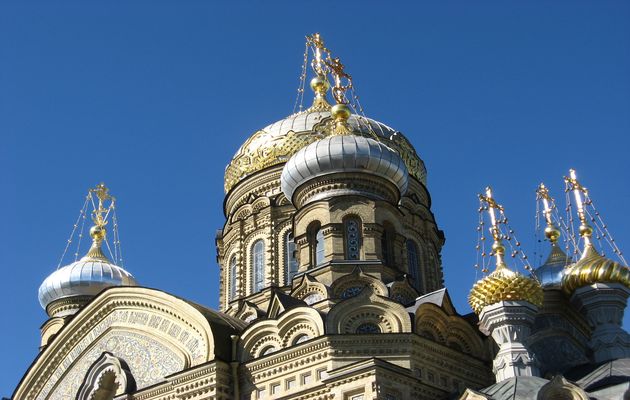Spanish evangelicals ask Russian embassy to protect religious freedom
“Russian evangelical Christians have a call to be model citizens but now they are at risk of being considered lawbreakers for their loyalty to Jesus Christ”, the Spanish Evangelical Alliance says.
Protestante Digital · BARCELONA · 08 NOVEMBER 2016 · 18:21 CET

The Spanish Evangelical Alliance (AEE) has sent a letter to the Russian ambassador in Spain, Yuri P. Korchagin, expressing its opposition to the so-called Yarovaya laws, "a serious restriction of one of the fundamental Human Rights: religious freedom".
The evangelical institution expresses the concerns the implementation of this law approved on 7 July has caused among evangelical Christians, both nationally and internationally.
The law empowers the Government to control the distribution of information and restricts religious expressions to temples. It also regulates the access and work of the foreign Christian workers, who must receive the permission of the state in order to carry out their work.
The law has been heavily criticised by international Human Rights organizations and also by evangelical Christians in Europe. Russian evangelical leaders even sent a letter to Putin, asking him not to approve the law.
"THE LAW RESTRICTS RELIGIOUS FREEDOM"
In this newest letter, the Spanish Evangelical Alliance says the law not only severely restricts religious freedom, but also other fundamental rights "such as freedom of assembly, freedom of expression and freedom of conscience, which are good thermometers of general freedom in every country."

The law “redefines the concept of 'missionary work' because every act made by religious groups and celebrated outside a place of worship, becomes a religious act." This implies that "for the public expression of faith, every believer must first obtain a state permit through an officially registered church or organization.”
At the same time, “the law prohibits the practice of the Christian faith outside the walls of officially registered churches and places of worship. These restrictions also affect private residences and the Internet. Many Christian groups that, like in the rest of the world, meet in homes or in places which do not fit the restrictive criteria of the law, will be illegal now. "
EVANGELICALS AT RISK
According to the AEE, "Russian evangelical Christians have a call to be model citizens and are an ally of just governments, but now they are at risk of being considered lawbreakers for their loyalty to Jesus Christ."
That is why they ask the Russian government to "defend the security of Russian citizens without undermining the right of every citizen to practice their faith with freedom", and to understand that "freedom of conscience and religion, in public and in private, is basic to the well-being of his country and defending them does not affect the fight against terrorism."
The document concludes by asking the Russian ambassador "to do everything in his power to support a modification of the law".
The letter is signed by Ted Blake, President of the Working Group on Religious Freedom of the Spanish Evangelical Alliance, and Jaume Llenas, its Secretary General.
Published in: Evangelical Focus - europe - Spanish evangelicals ask Russian embassy to protect religious freedom
